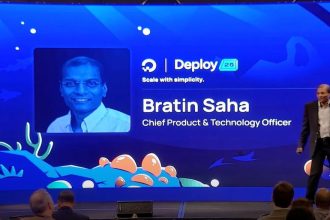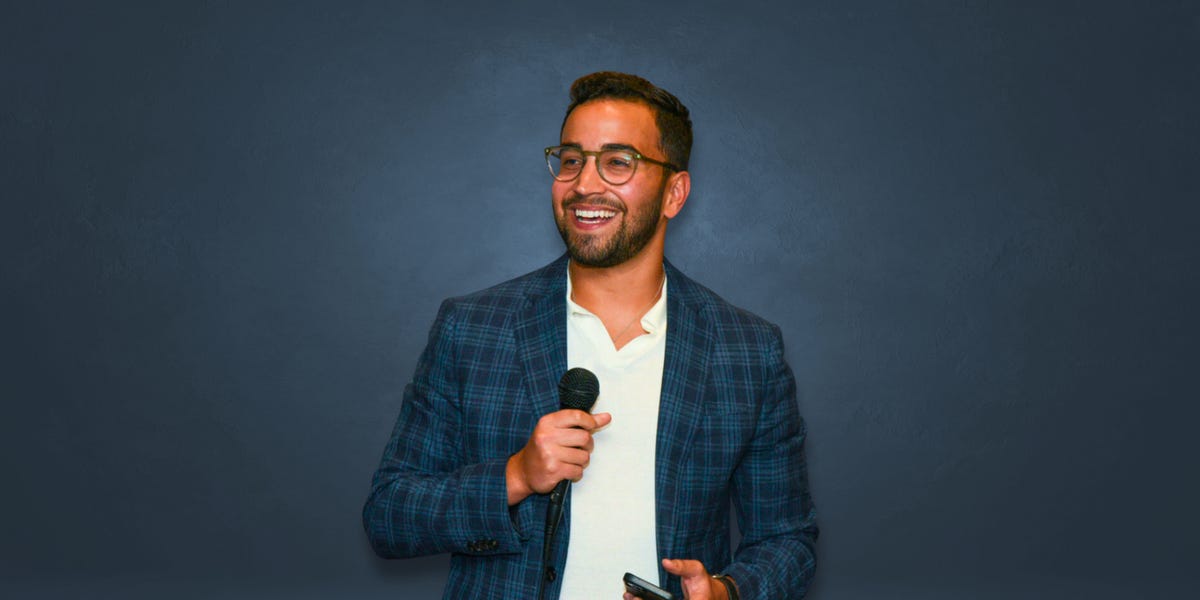At a bar in Brooklyn on a Wednesday night, it’s the final Creator Economy NYC hangout of the year — a series of events hosted by newsletter writer and startup founder Brett Dashevsky.
Creators, startup founders, marketers, VCs, journalists, and even, a wealth manager are mingling, introducing each other, and discussing what they do (or don’t do) within the broader creator economy.
I overhear Leon Lyakovetsky, cofounder of the social-media-comment-analytics platform Siftsy (which he started with Dashevsky), pitching the software to a talent manager. Dashevsky then introduces me to Karm Choudhry, a New York-based startup founder and ex-Jellysmack employee who launched earlier this year KreatorKarma, a video-editing and data-analytics platform.
Choudhry tells me that attending Dashevsky’s meetups helped him meet potential clients and that the opportunity to connect with industry peers IRL in New York, instead of on the West Coast, is “refreshing.”
Dashevsky’s series of events is branded entirely around New York City for a reason.
“You hear ‘creator economy’ and it’s always LA,” Dashevsky told me several weeks ago as we sat on a bench in the TikTok-famous Washington Square Park. “No — New York City is the hub.”
While the tech and entertainment industries are largely headquartered on the West Coast, New York City has become a growing capital for young entrepreneurs in both spaces.
“New York is the central hub for the media world and the creator economy touches the media space,” he continued. “There is so much drive and passion and excitement here in New York City and there is such a diverse group of people that are building in the creator economy.”
Notably, NYC offers something most cities — especially Los Angeles — can’t: a massive public transportation system.
“LA is really inaccessible. You need to drive. You need to Uber to places. It’s a little bit more difficult to bring people together on a frequent basis, they may need a lot more lead time,” Dashevsky explained. “For me, I maybe announce an event two weeks ahead of time, and some 80 people RSVP, and they’re like, I’m down for this. Because they know, okay, it’s in the lower East Side, it’s in the West Village, or it’s in Midtown. They can get there if they need to get there.”
Dashevsky began hosting his Creator Economy NYC events in January, about a year after he attended his first industry event in New York while working at newsletter company Workweek and living in New Jersey.
The first event he hosted gathered around 15 to 20 people at a bar in the Lower East Side. A year later, his events are attracting well over 100 RSVPs.
Dashevsky is now turning those RSVPs into an audience as well with a newsletter (powered by the newsletter tool Beehiiv), where he plans to keep people up-to-date, highlight NYC-based creator economy insiders, and harness a sense of community.
By hosting these monthly meetups, Dashevsky has become a recognizable thought leader in the space and a seasoned connector — finding business partners of his own and establishing a community where other like-minded people in the creator economy can potentially find their next employer, brand deal, or even a friend.
And despite a rocky year for the creator economy between layoffs and a funding dry spell, there’s still an air of optimism at Dashevsky’s events.
Building a community around IRL experiences
“I’ve almost been working backward in terms of the playbook,” Dashevsky said. “A lot of times it’s build an audience on rented land, like the social media platforms, then launch a newsletter where you own your audience, and then start to maybe do more community-focused stuff in real life.”
Dashevsky’s model for building a community has led to not only friendships, but business relationships too. He met his Siftsy cofounder, Lyakovetsky, at one of his NYC events. He’s also inked event sponsorships with creator economy companies including AI startup Captions, marketing agency Mekanism, online-course tool Teachable, and link-in-bio tool Hype. Hosting an event with a bar minimum, for instance, can cost between $2,000 and $3,000, so Dashevsky aims for sponsorships that can cover these fees, he said.
In the summer, Dashevsky hosted his first speaker-focused event featuring TikTok creator Timm Chiusano. And in the fall, he hosted events as a part of a16z’s NY Tech Week.
That’s about when Dashevsky realized “something is being built here.”
If there’s one thing Dashevsky has learned from his time working with content creators at Workweek and immersing himself in the creator economy through his events, it’s that “audience does not equal community.”
“They’re not synonymous,” he said. “An audience is one-to-one a community is many to many.”
Read the full article here





